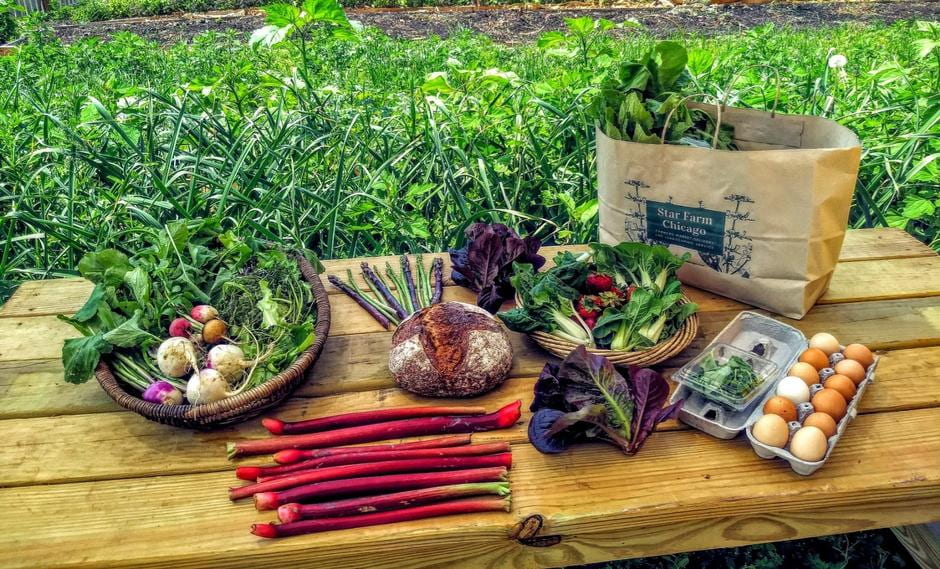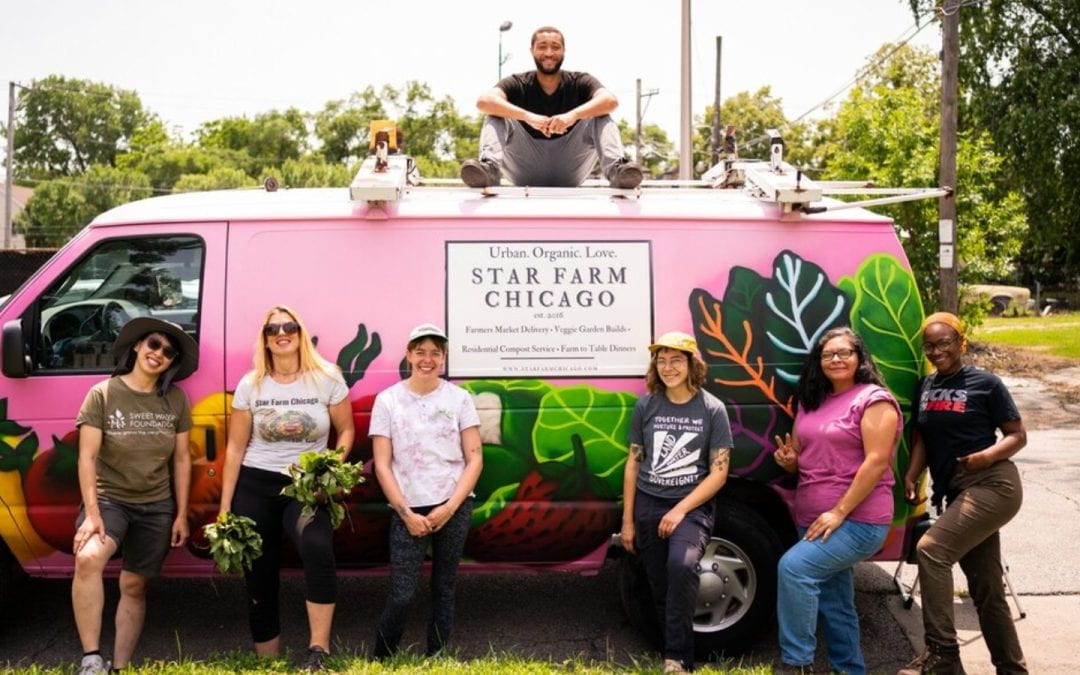I am Stephanie Dunn, a resident of Back of the Yards and the founder and executive director of Star Farm. Star Farm began in 2016–I squatted on it! The land was right next to my mom’s house. It was city-owned, it wasn’t being used, and it hadn’t been used for anything forever. I thought it would be more valuable and productive to activate it with a community garden. Sometimes you have to jump the ship to make things happen and figure things out later–we are finally acquiring the land officially after seven years next Tuesday [April 25]!
Star Farm’s main goal is to improve the food system within food insecure communities in a way that’s environmentally and economically sustainable, and engage with the local communities through permanent assets for the neighborhood. The most transformative and creative spaces are green spaces in the city that are interpreted, designed, and used by the community. Urban farming hits all the points of environment, policy, food access, food justice, environmental justice, violence reduction, health and wellness, preserving culture, and making people feel welcome in a dense urban environment that can be difficult to navigate.
I would love to see more amicable policies around connecting urban farmers with food-insecure communities. Historically a lot of local produce has gone downtown, and we’re trying to change that and create strong channels for growers. Your produce doesn’t have to go downtown to Michelin-starred chefs. We do more than twice as much in sales per hour at a senior home on the west side per hour than we do at a farmer’s market in Lincoln Park. As a local food aggregator and business incubator for small farmers we are trying to create opportunities for food to be pushed into communities that will really appreciate it.
At Star Farm, we try to encourage people to grow their own food and eat healthy, culturally relevant food. We have a business incubator farm for women, a farmers with disabilities program, and a mobile farmer’s market, which does 75 to 100 popups per year. We distribute more than a quarter million pounds of local produce annually, and we work with community partners, institutions, and social service organizations to get them growing for themselves.
Because land access is the most tenuous and touchy subject, we have to think about what would happen if all our land went away. Our food production would be gone–if so, who is Star Farm? What do we do? How can we keep doing it? Even if we couldn’t grow on our sites, Star Farm is the idea of promoting local food and engaging with the environment–if it’s 100 plants or 1 plant–if somebody on a balcony has a bucket and can put a tomato plant in there, that’s awesome. Every little bit helps—with the environment, with growing food, with saving money, with having really fresh delicious produce, growing it with your own hands, and sharing it with your neighbors.
We want to promote the idea of abundance where many are faced with scarcity every single day. We’ve been a first job for more than 50 youths in the neighborhood. We love for people to engage with us by getting their hands dirty and volunteering with us. We’re building a pollinator habitat, a Japanese garden, and planning events with chefs and artists who keep our spaces unique, engaging, and productive. We’re trying to have fun, enjoy abundance, and share food.
Learn more about Star Farm on their website, and follow Star Farm on Instagram and Facebook!


